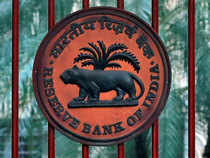KOLKATA| MUMBAI: Reserve Bank of India may revisit its policies to attract more foreign capital and restrict drainage of it to overseas markets, a move which will act as supplying oxygen to a capital-starved country.
This may also address the sharp volatility of rupee in currency market.
"The world today is flush with long-term savings in the nature of pension funds and corpus of insurance companies, our policy regime need to be nimble and accommodative enough to direct these to productive ventures in India. We are working towards this," RBI Deputy Governor BP Kanungo said.
On the issue of overseas investment by local entities, he said that several start-ups including individual entrepreneurs invest in India through a holding company overseas primarily because of the ease of raising capital in a foreign jurisdiction, whereas the economic activity is located in India, generating employment, revenue and economic value.
"We, along with the government, shall take a relook at any misgivings about regulatory regime in this regard and take necessary corrective action," Kanungo said at FEDAI Annual Conference at Beijing held on April 19.
RBI has uploaded a copy of his speech Thursday.
"Why should a capital deficit country export capital? Shouldn’t overseas investment be considered on the basis of the returns it generates," he said.
Capital outflows from the country has mostly been for direct investment for acquiring economic assets such as coalfields or oilfields.
India is among the world’s fastest growing countries and is the world’s third largest economy today in PPP terms. It is among the global investors’ preferred destination.
"Talking of the need of infrastructure sectors, we cannot help notice the emergence of a new class of investors: venture capital and private equity funds," Kanungo said.
Investment by these funds constitute about 35-40% of the FDI inflows in the past few years. But RBI has no differentiated policy for equity and debt outflows.
The current regime permits wide latitude of freedom to VC investors in select sectors perceived to be economically important but risky for normal FDI.
"Perhaps there is a need to consider private equity investment in its totality and see if a modulation of policy regime is warranted, including wider and innovative debt funding, hybrid instruments, etc particularly in so far as they relate to priority areas such as infrastructure, non-conventional energy, health, education and other social impact areas. This is engaging our attention," the RBI executive said.
Published On : 25-04-2019
Source : Economic Times

